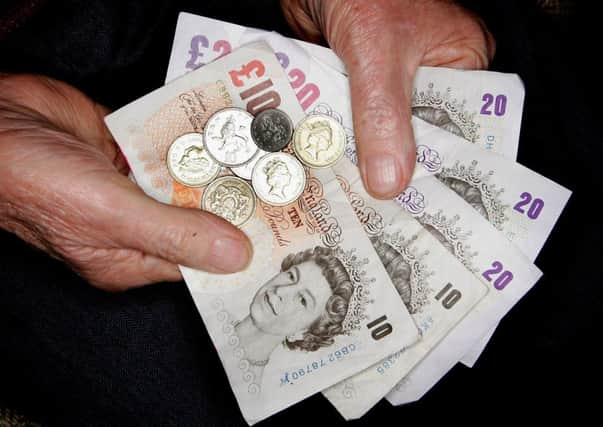Cash-in-hand economy costs taxman £½m per day


Builders, plumbers, electricians and other tradesmen tend to be behind the cash-only deals, which are often done to avoid tax, but it is feared the practice is giving rise to cowboy builders and shoddy workmanship.
It is estimated the cost to the taxman in lost revenue in Scotland alone is about £200 million.
Advertisement
Hide AdAdvertisement
Hide AdSmall business leaders condemned “rogue operators” who undercut legitimate tradesmen, and the building industry in Scotland has called for VAT to be slashed on home improvements in an effort to tackle the problem.
More than one in six (17 per cent) people in Scotland has paid cash knowing their tradesman is avoiding tax, according to research by price comparison website confused.com.
It also found that more than a third (35 per cent) of Scots have specifically asked for a discount in exchange for paying cash.
Scottish Building Federation (SBF) managing director Vaughan Hart said: “This new research demonstrates what a widespread problem this has become and the extent of damage it is doing to the legitimate building trade.”
Cutting VAT on building repairs and improvements could boost the Scottish industry by around £1.5 billion by 2020, previous research has indicated. “The UK Treasury should act now to introduce this measure, stimulate the construction sector and protect consumers from substandard workmanship that continues to give the industry a bad reputation,” Mr Hart added.
“As well as boosting industry activity overall, it would reduce the risk of consumers being exposed to shoddy or unsafe work.”
UK Treasury minister David Gauke recently sparked debate after saying it was “morally wrong” for homeowners to pay tradesmen cash-in-hand knowing they intended to avoid paying tax on it.
The research found 43 per cent of Scots polled confirmed they had been offered a discount in exchange for paying cash.
Advertisement
Hide AdAdvertisement
Hide AdThere is no law against paying someone in cash, but tradesmen are under a legal obligation to disclose their earnings to HMRC, and say whether they are liable for income tax or VAT.
The problem is that, without a paper trail, it becomes easier to deceive tax authorities. The research points out that 50 per cent of Scottish respondents have not received an invoice for work done by their tradesmen.
Slashing the rate of VAT would remove the appeal of paying cash to cowboy builders, who cost the government billions of pounds in lost revenue, according to the SBF. The lower VAT rate would be more than offset by the rise in volume of orders from customers.
Not everyone is comfortable with paying cash-in-hand, with 22 per cent of people believing it is morally wrong to give tradesmen cash in the knowledge they are avoiding paying tax. However, only 14 per cent of Scots say they would report a tradesman to HMRC for tax evasion, even if they knew they were actively avoiding paying tax.
Colin Borland, the Federation of Small Businesses’ head of external affairs in Scotland, said: “There’s nothing wrong in paying with cash instead of writing a cheque or paying online. But businesses which declare their income and pay their taxes don’t deserve to be undercut by rogue traders working outside the system.”